spring reading roundup
non-fiction I read in march, april, and may
Are you ready for a new season? I am. This spring has been a tumultuous one.
Here’s the part where the past version of myself would liken personal growth to the seasonal tune of nature around us. Perhaps I’d talk about how hardship forces us to bloom into our best selves, etc!
I’ve noticed that when sad events occur in my life, what follows is a strong impulse to coat the narrative in positivity. “X had to happen to open the door for Y!” I feel silly for doing this, but I’ve realized it’s a natural reaction. When we read, watch, and listen to stories about hardship, the narrative is almost always complete. More often than not, we’re experiencing the protagonist’s story in hindsight. It’s clear to see how the difficulties in their lives inadvertently lead to their growth.
Breaking news to my (and perhaps your) pain-averse brain: our lives are incomplete narratives. The desire to fast-forward through sadness towards victory, to skip towards the sheen of a lesson learned, is fruitless. In real life, shitty and sad things happen, and then we must simply live with the resulting outcomes. Whether dealing with conflict, loss, or just a grand onslaught of bad vibes, we only make ourselves feel worse when we set the expectation that things should be better, or that we should be feeling differently. Crappy things happen - it’s okay to feel crappy as a result.
Renowned philosopher Addison Rae once said “Guess I gotta accept the pain.” Simple but true. Yes, being present in one’s emotional pain is horrific. But allowing yourself to feel negative emotions when they naturally bubble up, rather than suppressing them, is the quickest way to properly work through them.
As is always the case when I undergo rough times, I’ve found solace in reading. Here are the non-fiction books I read this past spring. (Part two, featuring fiction reads, will follow.)
Reasons Not to Worry by Brigid Delaney
Brigid Delaney is an Australian author and political speechwriter. This is her fourth book, which I’d describe as a funny, Aussie version of Stoicism 101. In Reasons Not to Worry, Brigid explains the basic principles of stoicism and how to apply them to modern life.
For those already familiar with the works of Seneca, Epictetus, and Marcus Aurelius, this might not be the most riveting read. However, for the uncultured among us (coucou it’s me) who have only had minimal exposure to these great thinkers by way of disparately encountered quotes, this was highly informative.
Some of the advice may come off as sadistic at first. For example, according to the Stoics, one should prepare for the tragedy of loss by visualizing the death of all of your loved ones. This actually has a name: negative visualization. I personally wouldn’t recommend ruminating on such terrible thoughts for hours on end. However, I've learned that in microdoses, this is actually a useful tool. When you remind yourself that the lives of your loved ones are finite, you appreciate each moment with them just a bit more. You also become more patient. Same applies to your own death / life / existence.
I’d recommend this book to my neurotic peeps who wish to feel more calm. Also, to anyone who’d like a fun introduction to stoic thinking.
The Anxious Generation by Jonathan Haidt
Unlike the aforementioned tome, this book gave me many reasons to worry. Jonathan Haidt is a social psychologist, author, and professor at NYU. In The Anxious Generation he delves into the epidemic of social media addiction, and how it’s hindering the development of adolescents around the world. Spoiler alert: the kids are (as they would say) cooked.
Here’s the most illuminating fact I retained from this book: C-suite execs of Silicon Valley tech and social media companies send their kids to schools where smartphones are not allowed. Now, let me remind you of an effective drug dealer’s mantra: don’t get high on your own supply. The fact that they protect their own kin while allowing hundreds of millions of other children around the world get hooked on their apps is abhorrent. The damage to Gen Z is done, but there’s still hope for future generations. That’s why Haidt is sounding the alarm - so we may attempt to avert future harm.
After laying out all the terrible things smartphones and social media do to our brains, Haidt outlines clear action points on what parents can do on a micro level for improve children’s circumstances. He also explains what we as a society can do in order to forge a more mindful path ahead vis à vis social media use.
If you’re a parent and don’t have time to read this book, I’d recommend watching Jonathan Haidt’s episode on the Ezra Klein show to get an overview:
Troubled by Rob Henderson
Rob Henderson is a writer with a PhD in Psychology. He writes a popular Substack newsletter which I’ve been subscribed to for several years now. Troubled is his first book.
In his memoir, Rob traces his exceptional trajectory from foster child, to rebellious teen, to Air Force enlistee, and finally, to Yale graduate. What separates Troubled from the other memoirs I’ve read about poverty, education, and class, is the research and data he includes in the narrative. Henderson regularly steps outside the boundaries of his own experience to illustrate how unusual his outcomes were. Sadly, many young men with similar origin stories end up incarcerated, or worse.
One chapter of this book is dedicated to Henderson’s concept of ‘luxury beliefs’. These are beliefs which “confer status on members of the upper class at little cost while inflicting costs on persons in lower classes." As someone who grew up poor and now works with / for wealthy people, I was amused by the examples he gave for the concept, many of which stemmed from his years at Yale.
I’d recommend this book to anyone who enjoys memoirs, and those who are interested in exploring concepts of class. I’d also recommend subscribing to his Substack - beyond interesting newsletters, he also does funny White Lotus video recaps whenever it’s airing. His background in psychology makes his character analyses all the more interesting.
A Promised Land by Barack Obama
This is Barack Obama’s third book, and consists of the first half of his presidential memoirs. It primarily covers his campaign as well as his first term in office. I’m not going to give a history lesson or overview of this book. I will simply share one PRO TIP.
For anyone who decides to read this, I highly recommend listening to all the chapters including foreign leaders. I don’t think it’s intentional, but Barack does a hilarious impression of both Nicolas Sarkozy and Angela Merkel. (As an aside, when I’m truly enjoying a book, I’ll tune into the audiobook version on Spotify during my afternoon walks.) The first time I heard his French-tinted Sarkozy dialogue, I literally stopped in my tracks.
Clocking in at 701 pages, this is the longest book I’ve read since I started writing these reading roundups. So in addition to enjoying his accent work, listening to the audiobook for 20-ish minutes a day was helpful in terms of progressing through the memoir.
Obama said he hopes to finish part two of his presidential memoirs this year. Angela Merkel served as chancellor throughout the entirety of his second term, so I look forward to more impressions of her soft German voice soon.
I’ll be back at the end of the month with another spring (bleeding into early summer) roundup featuring the fiction books I read the past three months.
Have a great first official weekend of summer! x




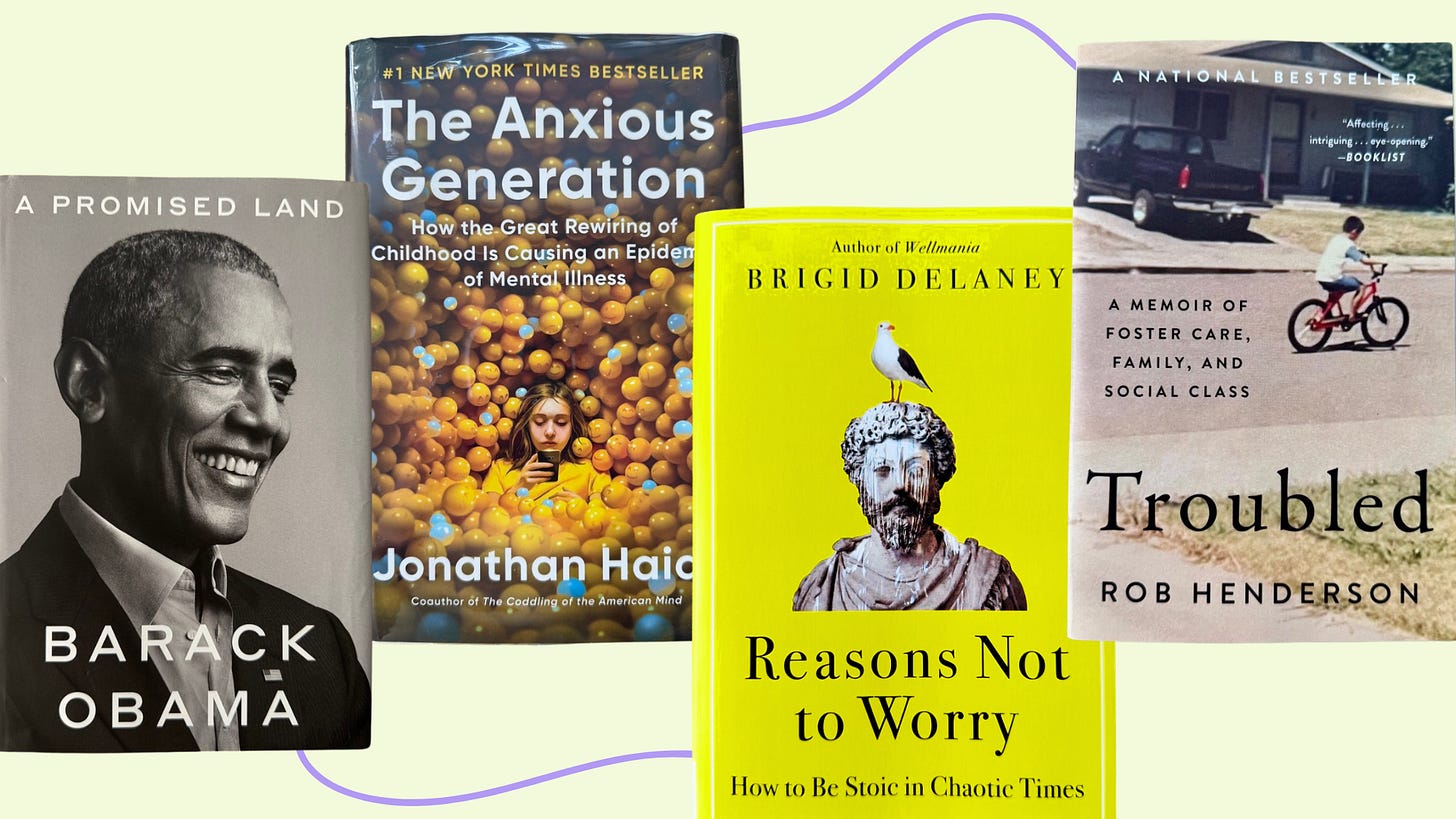
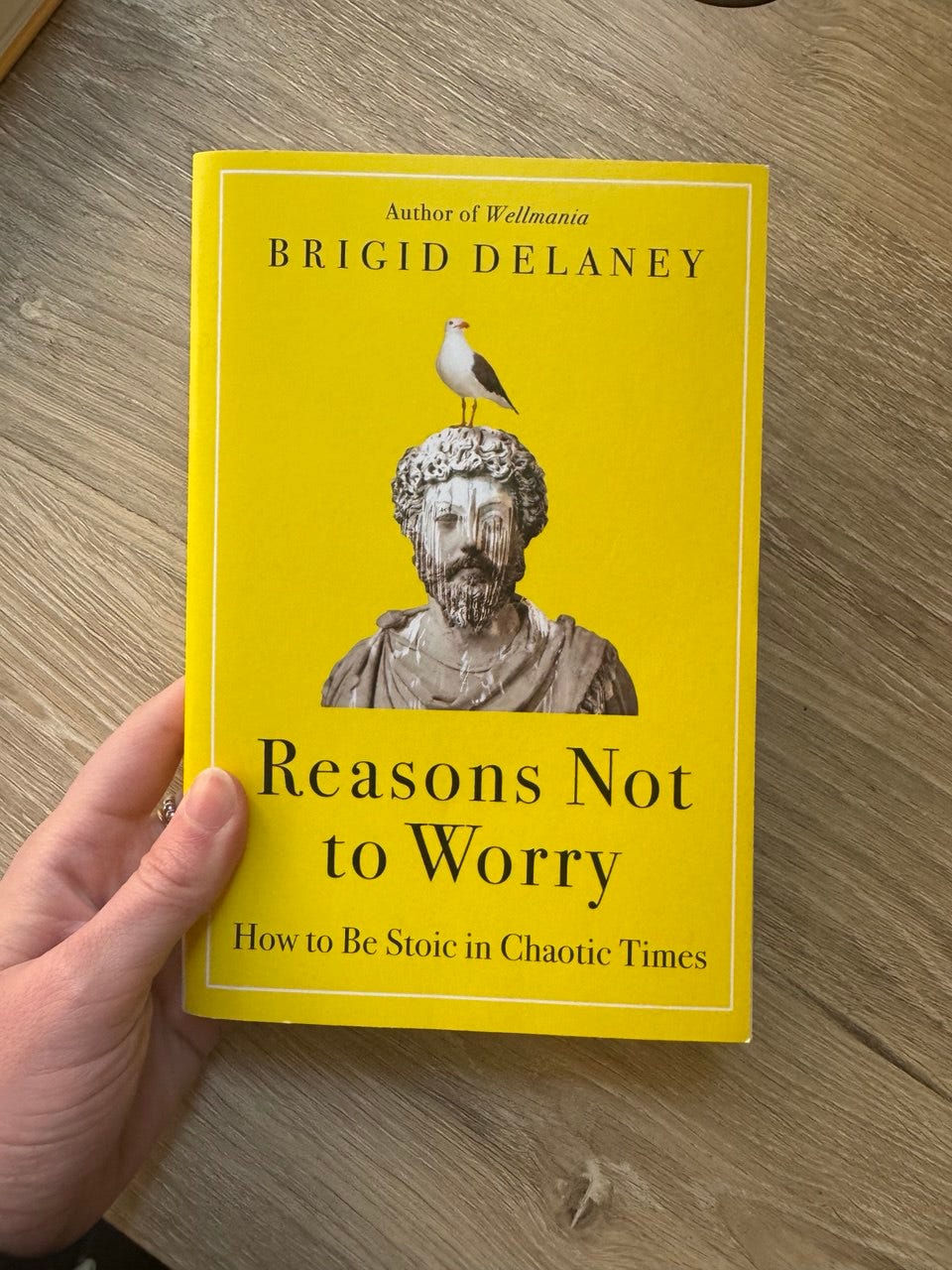
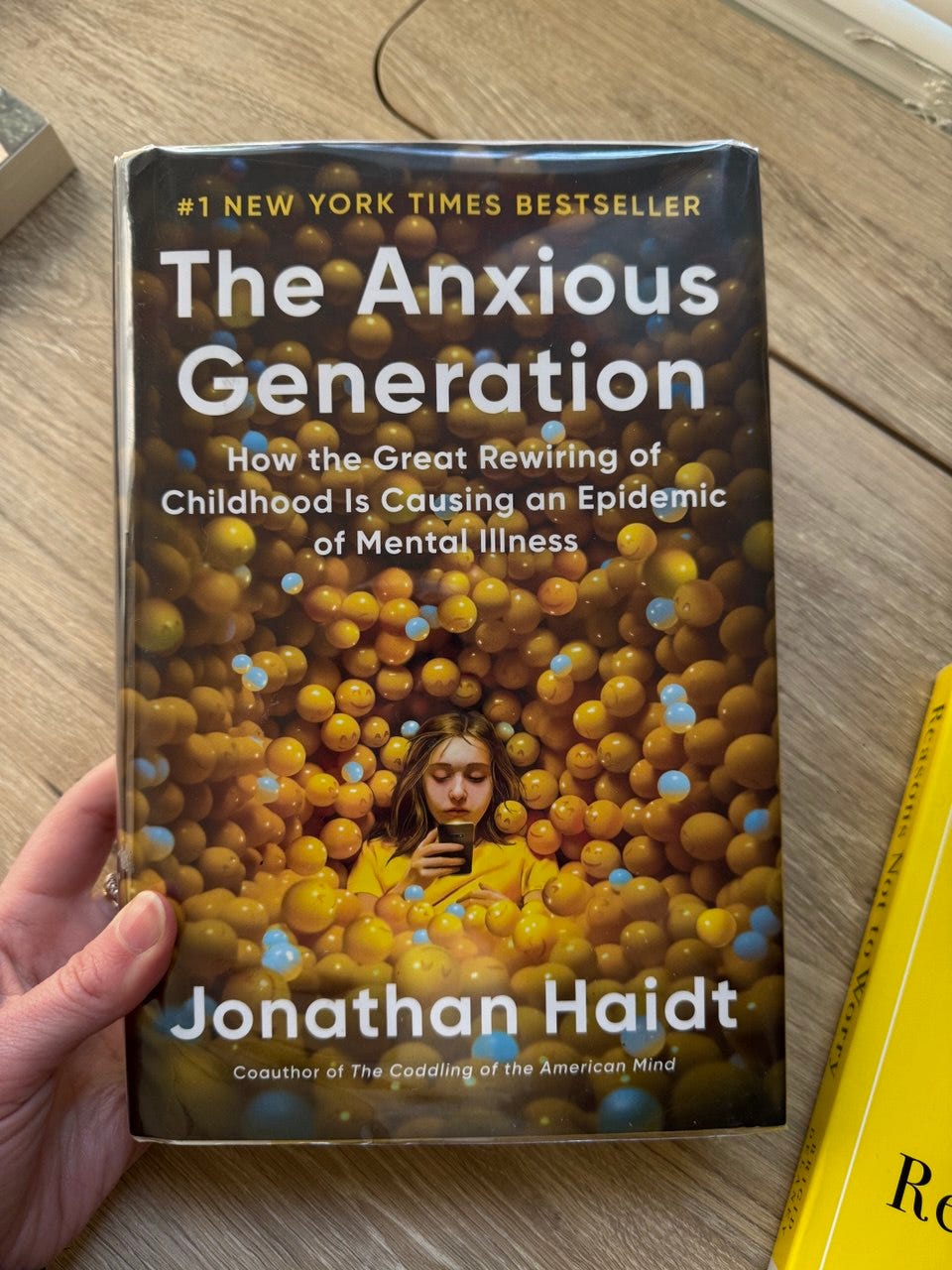
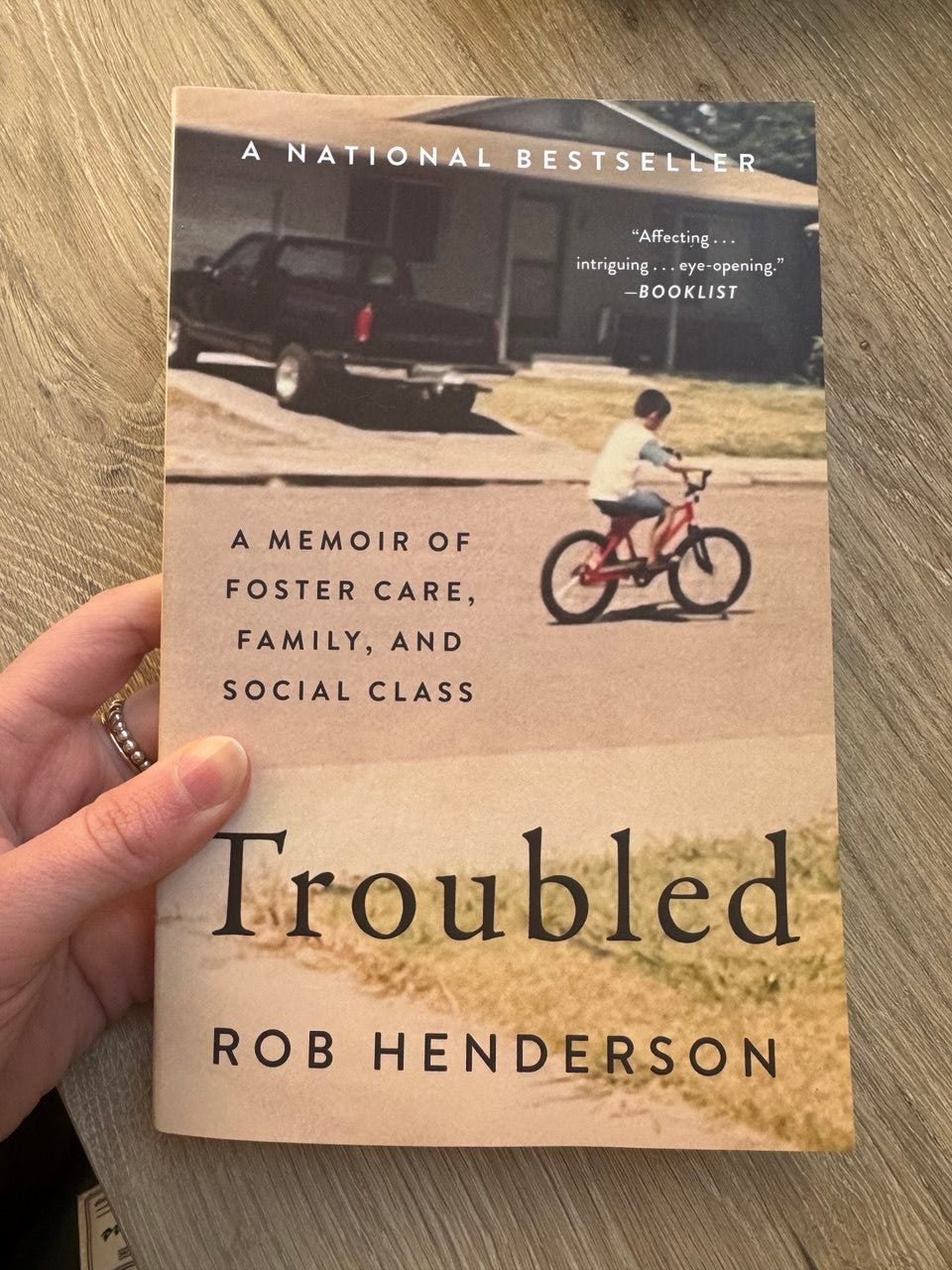
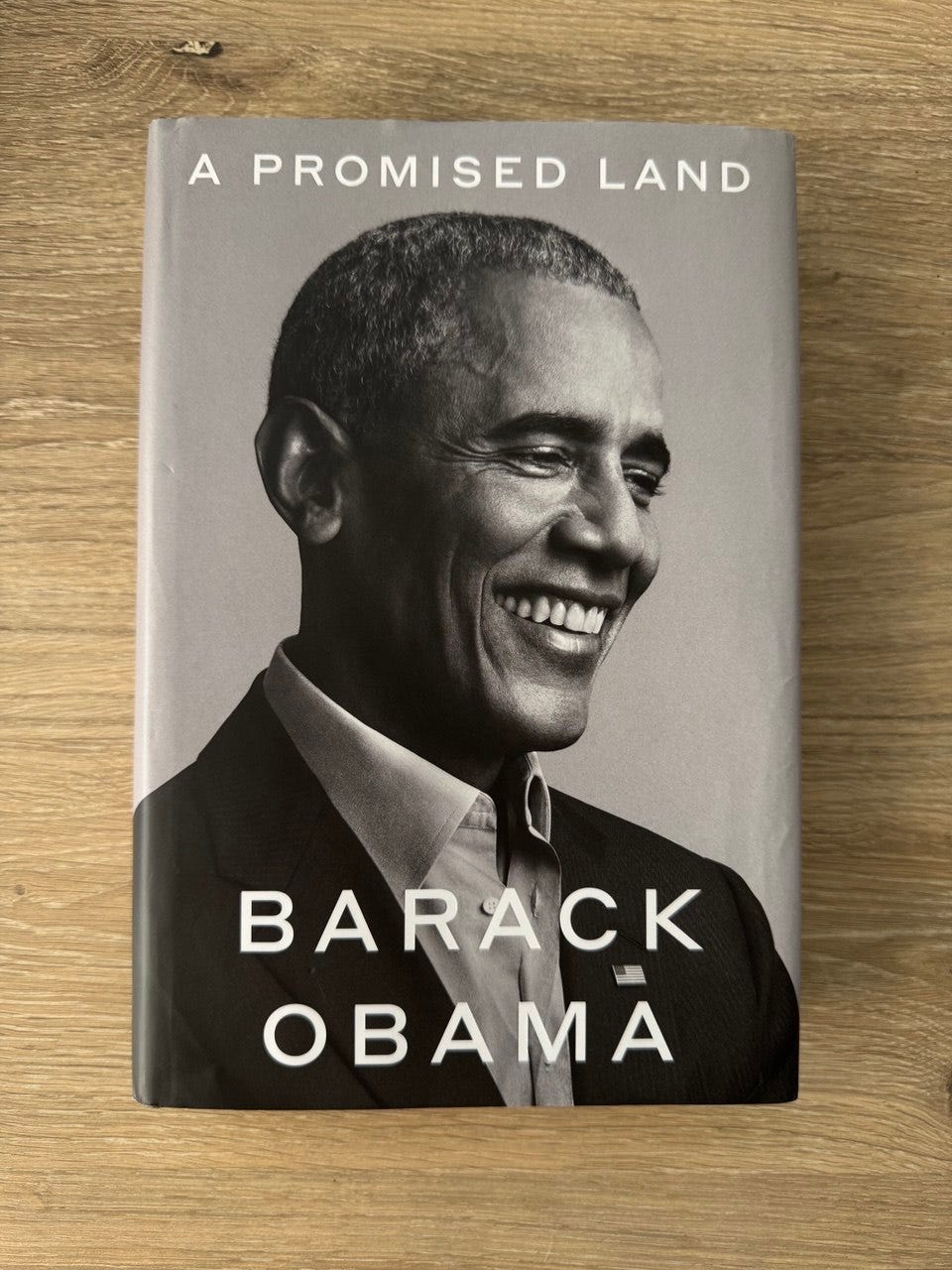

She’s back! 🥳
By the way thank GOD you are back! We missed you and your glorious quips!! I read the Obama book during lockdown, right before voting for Biden. The way he talked about Joe honestly made me more enthusiastic to vote for him, despite how I felt in the primaries. That is a BOOK-book!